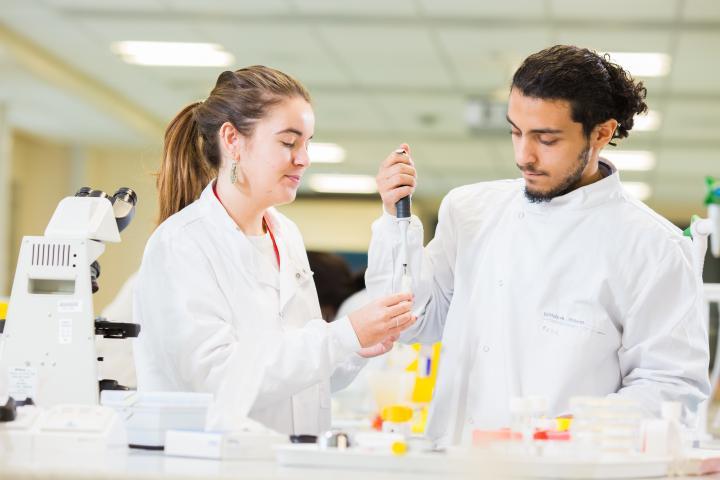Biomedical Science BSc (Hons)
- Study level:
- Undergraduate
- UCAS code:
- C900
- Duration:
- 3 years
- Attendance mode:
- Full-time
We have 2 courses in this area.
You get to learn how your body works on a molecular level and see how disease affects your natural body processes, how everything fits in together so nicely and works in harmony.
Viktorija, BSc (Hons) Biomedical Science
I hope to inspire the next generation of scientists and make students aware of the variety of career options that a biosciences degree offers. There are a large number of lab-based careers such as in NHS and public health labs, research and development, pharmaceutical and biotechnology companies, and food and water industries.
Dr Mark Sutherland, Assistant Professor, BSc Biomedical Science graduate
Graduates have options to continue in education or research, or pursue a career in specialist healthcare science sectors. Some roles our recent graduates have taken include:

Discover more about life as a student here at Bradford. Find out about courses, career options, campus life, how to fund your studies and how you'll be supported through your time here.